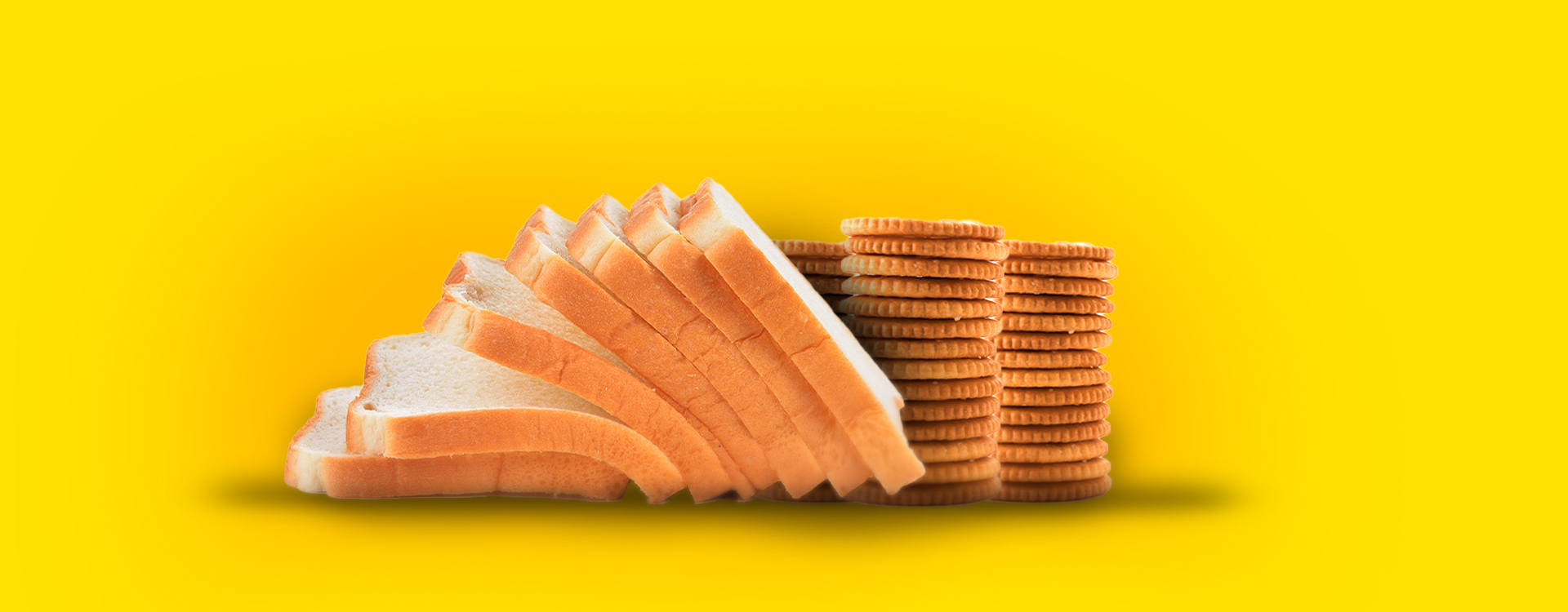It is rare to find a tea sipper without holding a pack of biscuits, or a house not having the bread as the breakfast option. As disposable incomes improved and more women joined the workforce, the mothers began looking for tiffin and snack options that can be made in no time or hardly involve cooking. Bread and biscuits, initially brought to our country by the British, soon began to rule the Indian breakfast tables and tea-time. In the future, India’s biscuit market, according to the Market Outlook report, is estimated to reach $7.25 billion by 2022 at a compound annual growth rate of 11.27 percent.
Moreover, the advent of fast-food chains in burgers, sandwiches, and pizza boosted the demand for bread.
80 percent of the Indian bakery market is dominated by bread and biscuits. As per a report titled, ‘Indian Bakery Market: Industry Trends, Share, Size, Growth, Opportunity and Forecast 2020-2025’ by the IMARC Group, the Indian bakery market is estimated to be worth $13.3 billion by 2025, expanding at an annual compound rate of 9.1 percent.
But over time, sedentary lifestyles are giving birth to diabetes, high blood pressure, and obesity. Amid emerging lifestyle diseases, the bread, and biscuit industry will witness new consumer preferences and in future will cater to the new behaviour.
New Emerging Trends in India’s bread and biscuit industry
Caught in a fast-paced life and lifestyle diseases catching young individuals, Indians are demanding food options that are quick to make while providing wholesome nutrition as well, which is mushrooming new trends in the bread and biscuit industry.
- No use of refined flour: Refined flour is an essential element for biscuits and bread, but its regular consumption poses health risks such as -diabetes, obesity, and type 2 diabetes. People are considering consuming foods containing fibrous content such as brown bread and biscuits made out of flour whose husks or outer cover has not been separated.
- Going Gluten-free: People with celiac disease on consuming gluten-containing foods develop intestinal inflammation. Also, gluten does not hold any nutritional value. Bakery brands are developing gluten-free biscuits, cookies, and bread. For vegetarian customers, brands are going eggless by adding egg replacers resembling the texture of egg bakes.
‘‘
In the future, India’s biscuit market, according to the Market Outlook report, is estimated to reach $7.25 billion by 2022 at a compound annual growth rate of 11.27 percent.
- Hello natural sugar: Sugar, in the biscuits especially, is being replaced with natural sweeteners and sugar replacers for example – stevia and fructooligosaccharides respectively. Jaggery, date syrup is also being used. Butter in the biscuits is replaced with healthy or soluble fats such as nut butter, seed butter, vegan butter, olive oil, and coconut oil.
- Healthy slices of bread: The bakery industry is introducing bread without baker’s yeast as the leavening agent. They are developing healthy bread such as sourdough bread, multigrain bread fused with herbs, protein-rich bread using lactic acid bacteria that improve gut health and are easily digestible.
- Hello natural sugar: Sugar, in the biscuits especially, is being replaced with natural sweeteners and sugar replacers for example – stevia and fructooligosaccharides respectively. Jaggery, date syrup is also being used. Butter in the biscuits is replaced with healthy or soluble fats such as nut butter, seed butter, vegan butter, olive oil, and coconut oil.
- Immunity Boost: Biscuits manufacturers are fusing biscuits with hazelnuts, figs, ginger, granola, pears, banana, turmeric, cinnamon, clove to boost immunity.
- New bakery items: Bakers are experimenting with mixing different bread products such as croffle – a new bread snack formed from mixing croissants and muffin is making more customers try it.
What do consumers want from the bread and biscuits industry?
Biscuits and bread snacks have been a favourite munching option. As people become more health conscious, they want to cut their sugar intake to a minimum while not refraining from eating them. With the rise of fitness social media influencers emphasising on fitness and minimum calorie intake, consumers, especially the millennials, are seeking bakery products that provide high nutritional value and are fibrous. This is making bakery manufacturers include more nutritious ingredients like oats along with minimal to zero use of artificial colours and preservatives and avoiding high fructose syrup completely.
What lies ahead for the Indian biscuit and bakery industry?
The pandemic has forced people to revisit their plates and shift to healthier foods and immunity-boosting foods. As health remains on top of the priority list, people are willing to pay more for additive-free biscuits and bread products. Besides, additive-free, organic bakery products in the market will also show strong demand as people are aware of the side-effect of excessive fertiliser induced crops.
Recently, FSSAI has limited the use of trans fat limit in bakery foods to 3 percent from 5 percent to prevent the risk of cardiovascular ailments. This will result in biscuits and bread manufacturers looking for fat alternatives such as unsaturated fats to adhere to regulatory requirements.




